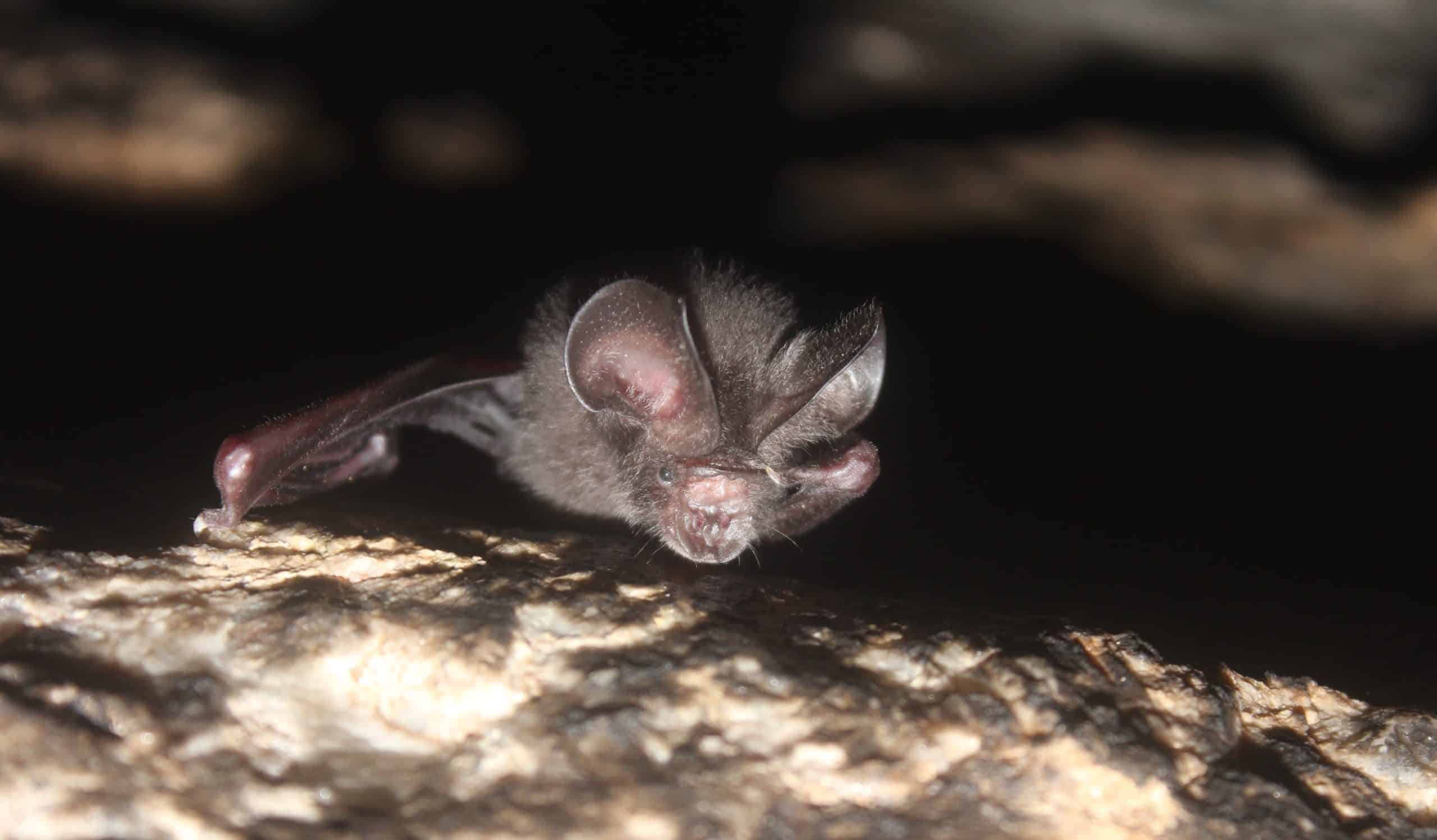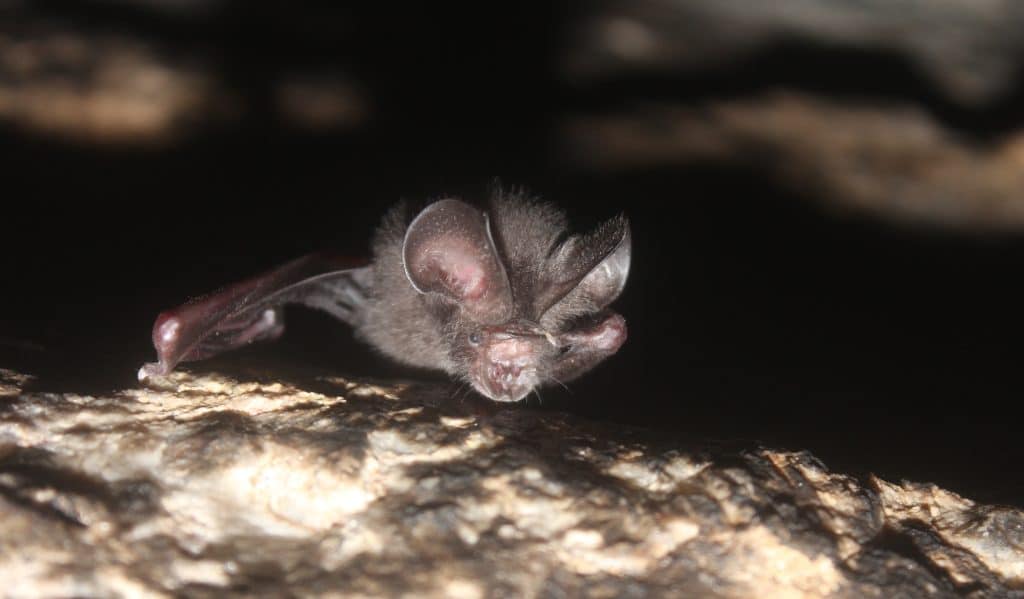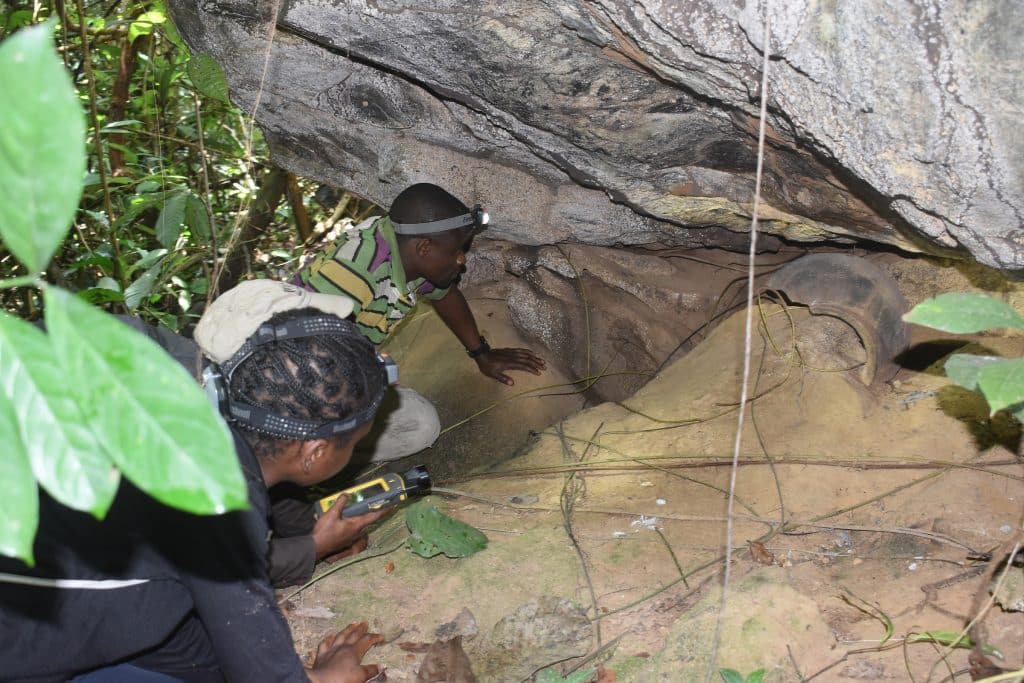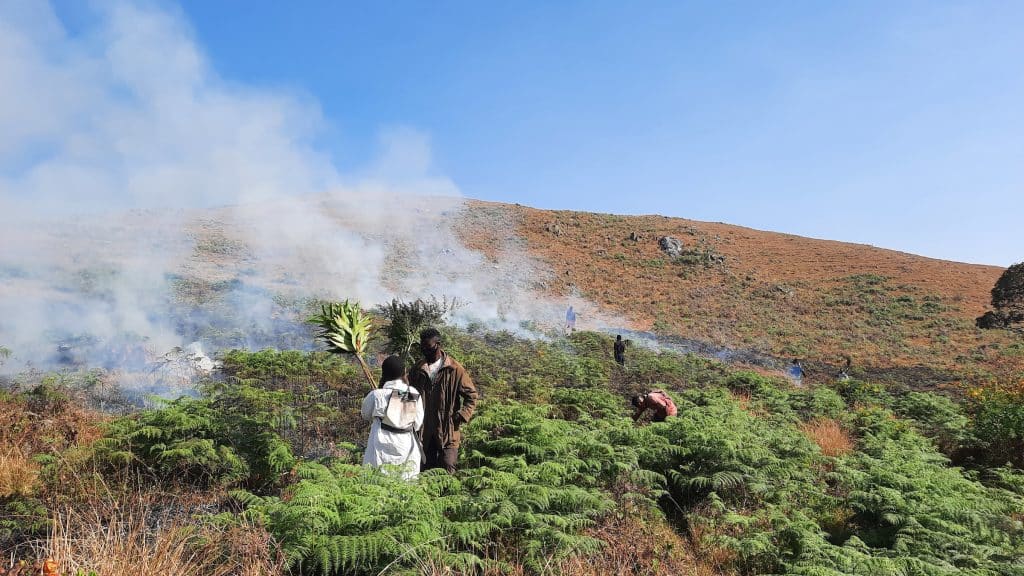Inieke Udokang and her colleagues readied their binoculars and slowly stepped into the darkness, the soft light from their headlamps casting hard shadows across the cave’s stone facets. Before long, their lenses settled on several balls of fur with large ears clutching a high ledge—a roost of short-tailed roundleaf bats, staring curiously at their new guests. Caves like this are the only reliable locations to monitor these endangered bats, making them incredibly important to the Small Mammal Conservation Organization (SMACON), WCN’s newest Conservation Partner. But these caves and surrounding forests are repeatedly threatened by wildfires accidentally set by nearby farmers. To ensure these key habitats don’t go up in smoke, Inieke’s team works with communities to stop wildfires before they occur.
On a continent famous for its iconic large animals, SMACON protects little-known, highly vulnerable bat species in West Africa. Short-tailed roundleaf bats are the size of golf balls and weigh even less. Very few of these bats remain in seven forest caves across Nigeria, Cameroon, and Equatorial Guinea. SMACON protects and researches those found in four caves in Nigeria’s Cross River National Park and Afi Mountain Wildlife Sanctuary. The bats need intact forest and undisturbed caves to thrive; if the bats deem a cave unsafe, they will leave that site and likely never return. Safeguarding their caves is a top priority for SMACON, because if the bats abandon them, it will be difficult for the team to find them again, and for the bats to find suitable replacement roosts.
Wildfires pose the greatest danger to these bats. Thousands of farms surround the borders of these forests, and farmers commonly burn old brush on their property before planting crops. These fires often go untended or simply go wild, spreading to neighboring farms and devastating their livelihoods. Once the blaze reaches the forest, there’s no way to control its spread, threatening the bats and countless species that share their habitat, including gorillas, grey parrots, pangolins, and drill monkeys. If the bats detect even a hint of smoke at the mouth of their caves, they will flee for good.
Without intervention, fires can torch farms and forests for weeks. As SMACON’s Community Engagement and Research Manager, Inieke works with local farmers to reduce wildfire frequency. The SMACON team created a color-coded wildfire warning system, placed on signs throughout villages to inform farmers of daily fire risk conditions. Inieke enlisted and supervises over 50 forest guardians from within these communities, who act as first responders to limit fire damage to farms and prevent fires from reaching the forests. She also leads local communities in the creation of firebreaks around the edge of the forests. Wildfires used to occur multiple times each year, but thanks to these community-led interventions from SMACON’s fire prevention program, no wildfires have reached these forests for the last three years.
With Nigeria’s caves now more secure, SMACON plans to expand their wildfire reduction work to communities near Cameroon’s bat caves. By protecting habitat and empowering local people to lead the charge, SMACON is keeping Africa’s endangered bats safe and at the forefront of people’s minds.




